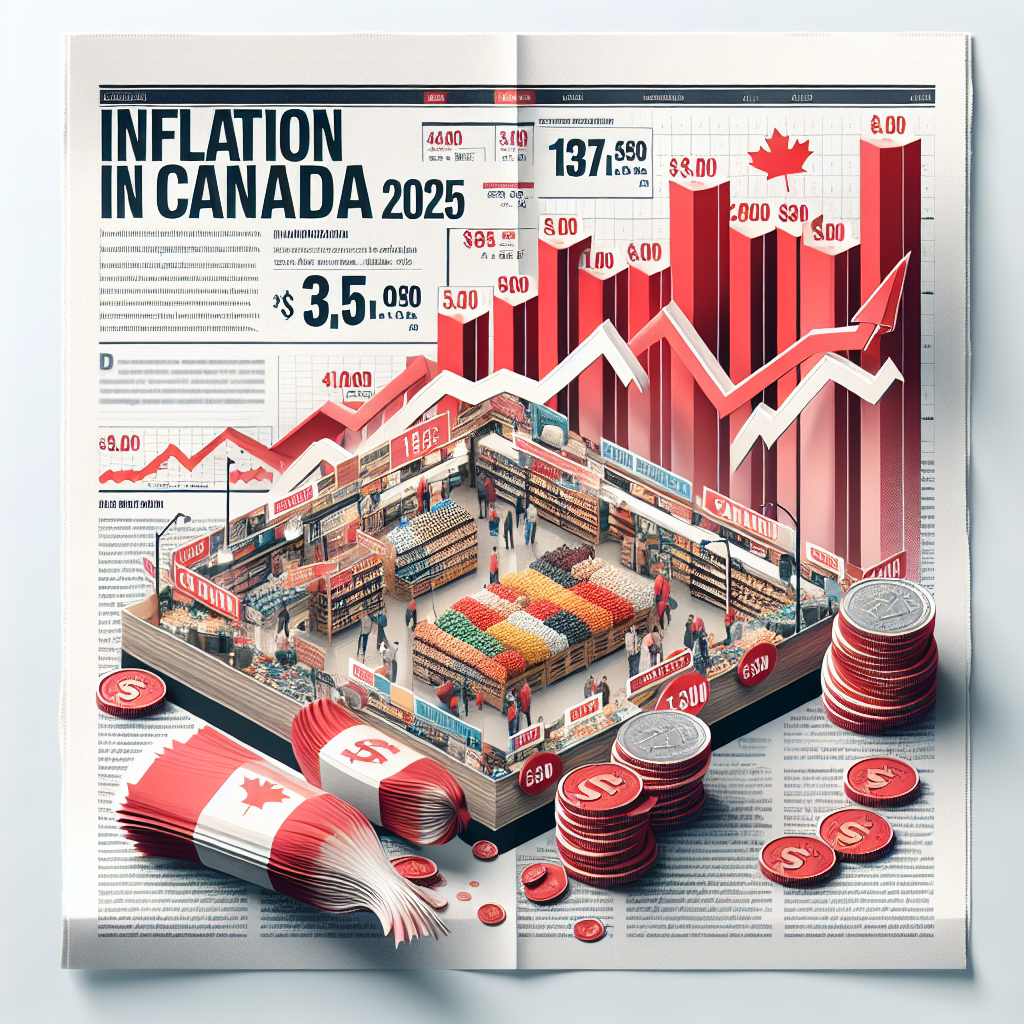Inflation Trends in Canada 2025
Introduction
Inflation in Canada has been a topic of significant concern among economists and consumers alike. As we approach 2025, understanding the trends, causes, and implications of inflation is crucial for making informed financial decisions. This comprehensive blog post aims to shed light on the expected inflation rates, key drivers behind these trends, and actionable insights for stakeholders.
Overview of Inflation in Canada
The Bank of Canada has been proactive in managing inflation rates, but external factors such as global supply chain disruptions and fluctuating commodity prices continue to pose challenges. In 2025, inflation is expected to stabilize around 3.5%, down from a peak of 5.7% in 2023. This stabilization is attributed to corrective measures taken by the central bank, including interest rate adjustments and inflation-targeting policies.
Key contributors to inflation in Canada include:
– Supply Chain Disruptions: Continued recovery post-pandemic has led to uneven supply and demand dynamics.
– Energy Prices: Volatility in oil and gas prices plays a pivotal role in overall inflation.
– Wage Growth: As the labor market tightens, wage increases may contribute to higher consumer spending, impacting inflation.
Economic Implications
Understanding inflation is essential for individuals and businesses to make decisions related to pricing, investments, and savings. Higher inflation typically leads to increased costs of living, which can strain household budgets. For businesses, inflation can influence pricing strategies and wage considerations, ultimately affecting profitability.
- For Consumers: It’s crucial to monitor price changes in essential goods and services. Adjusting spending habits now can cushion the financial impact of rising costs in the future.
- For Businesses: Companies should consider revisiting pricing strategies to maintain margins. Additionally, hedging against inflation through financial instruments can stabilize cash flow amid uncertainties.
Recommendations
As we navigate the inflation landscape in 2025, certain strategies can help mitigate its impact:
- Budgeting for Inflation:
- Set aside an emergency fund to cover unexpected expenses that may arise from rising prices.
-
Prioritize spending on essential goods and limit discretionary purchases to manage cash flow effectively.
-
Investment Strategies:
- Consider investing in inflation-protected securities such as Canada’s Real Return Bonds (RRBs).
-
Diversify your portfolio with commodities and real estate, which typically perform well in inflationary environments.
-
Staying Informed:
- Regularly review economic forecasts from trusted sources. The Bank of Canada and financial news outlets provide critical insights into inflation trends.
- Leverage financial advisory services to tailor investment plans suited to your risk tolerance and inflation expectations.
Conclusion
In summary, while inflation poses challenges, understanding its dynamics can empower Canadians to make informed financial decisions. By being proactive and strategic, individuals and businesses can navigate through 2025’s inflation landscape effectively. Continuous monitoring of economic indicators and seeking expert advice will ensure preparedness in uncertain times.
Share Your Thoughts
How do you feel about the impact of inflation on your finances? Share your thoughts in the comments below or join the conversation on social media!
